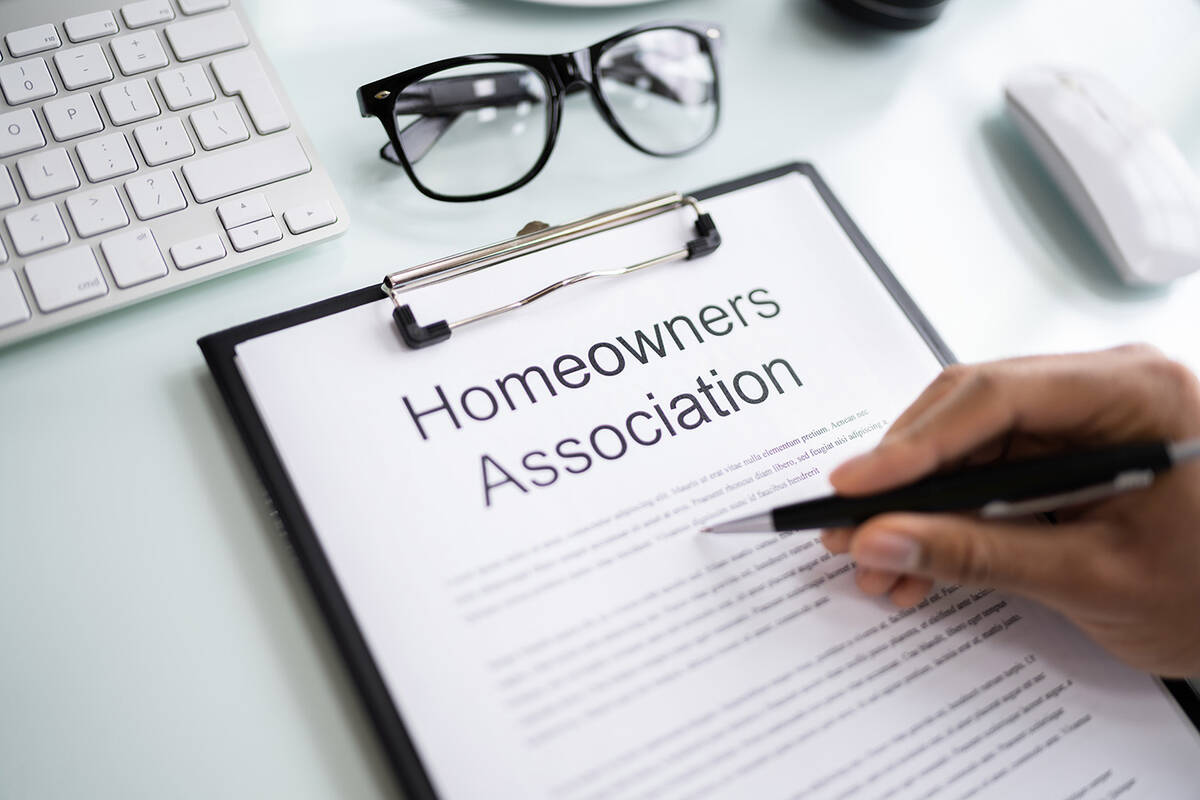Homeowners can meet to air concerns about HOA
Q: We are a small homeowners association community, and we have two owners/residents that have selectively went door to door soliciting other residents to petition our HOA board with a variety of complaints. On two separate occasions one of the two members who have created this group has had their questions posted in your column about a contractor and about the lack of supervision by the board.
This group has held three secretive meetings at our clubhouse without renting the clubhouse to propose to select residents about petitioning the HOA board to air their complaints. No records or notification of these meetings have ever been posted. These two residences on several occasion have been harassing/bullying residents on different occasions with complaints being sent to HOA managers and the HOA management, which sent letters of warning to the violators each time.
What can the HOA or HOA board do regarding these meetings being held in secret at the clubhouse and the behavior of the two residents in the community with no consequences?
A: Homeowners do have the right to meet to discuss their concerns about their association. Unlike board meetings that have to be disclosed to the membership, this group can have private, undisclosed meetings. Now, depending upon your regulations, if it requires homeowners to reserve the clubhouse and pay a fee, you can charge them for the use of the clubhouse, the leaders of the group.
As to possible consequences for the harassment or bullying, you would need to identify specific actions that have been taken by the group, dates, times, etc.. What actually happened? Was there face-to-face confrontations or emails or comments on social media that would support the charges of harassment? Once you have identified these actions, you will need to meet with your legal counsel to determine if the leaders of the group, or the group itself, are in violation of Nevada Revised Statutes 116.31184 and or NRS 388.122.
Your association has some options, including a strong warning letter with consequences from your legal counsel or a cease and desist action taken against them. Filing a formal lawsuit would cost money and time. Your attorney should be able to help your board decide what action to take.
Q: I live in an HOA and people are planning to write in a candidate for the board.
The HOA has submitted the election material. On its instruction sheet it instructs people to submit their ballots to their office one day prior to the annual meeting and the election.
The election is being held at our clubhouse on the day of the meeting. On the actual ballot, it lists the candidates and a copy of their nomination forms .
On that same ballot there is a spot for a write-in candidate. Underneath the write-in slot it states that a write-in nominee must distribute their nomination form to the association before the voting on or before the meeting date.
If the candidate that is written in doesn’t know they are being written in and won, how would they know to submit a nomination form prior to, or before the ballots are counted ? Would that disqualify that person ?
Is this an NRS law or are they making up their own set of rules ?
My other questions are:
■ Can people vote and submit their ballots on the same day of the annual meeting and election, since it’s being held at our property ?
■ Also, if that is the case, can a write-in candidate submit both their ballot and nomination form on that same day?
A: Here is what the law states concerning nominations and elections: Under NRS 116.31034 (4), not less than 30 days before the preparation of a ballot for election, the association shall cause notice to be given to each owner of their eligibility to serve as a board member. Each owner who is qualified to serve may have his or her name placed on the ballot. If by the end of the nomination period, the number of candidates nominated are equal to or less than the number of members to be elected, the nominated candidates shall be deemed duly elected. (5, 5b) and the association would not have to send out ballots.
Under subsection 9, each candidate in writing must make all disclosures in writing to the association with their candidacy information. The two disclosures are that a candidate is a member in good standing and that the candidate would make a good faith effort to disclose any financial, business, professional or personal relationship that would result or appear to a reasonable person to result in a conflict of interest if the candidate were to be elected.
The association shall distribute the disclosures on behalf of the candidate to each member of the association with the ballot.
NRS 116.31034 does not include a process for a write-in on a ballot that has already been sent to the membership. It would appear that your association has already sent out the ballots with their nomination form, which probably included the two disclosure sections. If that is a fact, you would have to check with the Nevada Real Estate Division as it would appear, based on the law, the write-in candidate may not be eligible as the write-in candidate did not include his or her disclosures that are to accompany the ballot. Only the actual candidate can complete the disclosures.
As to the voting process, all ballots would need to be submitted before the counting of the ballots.
Barbara Holland, CPM is an author, educator, expert witness on real estate issues pertaining to management and brokerage. Questions may be sent to holland744o@gmail.com.















